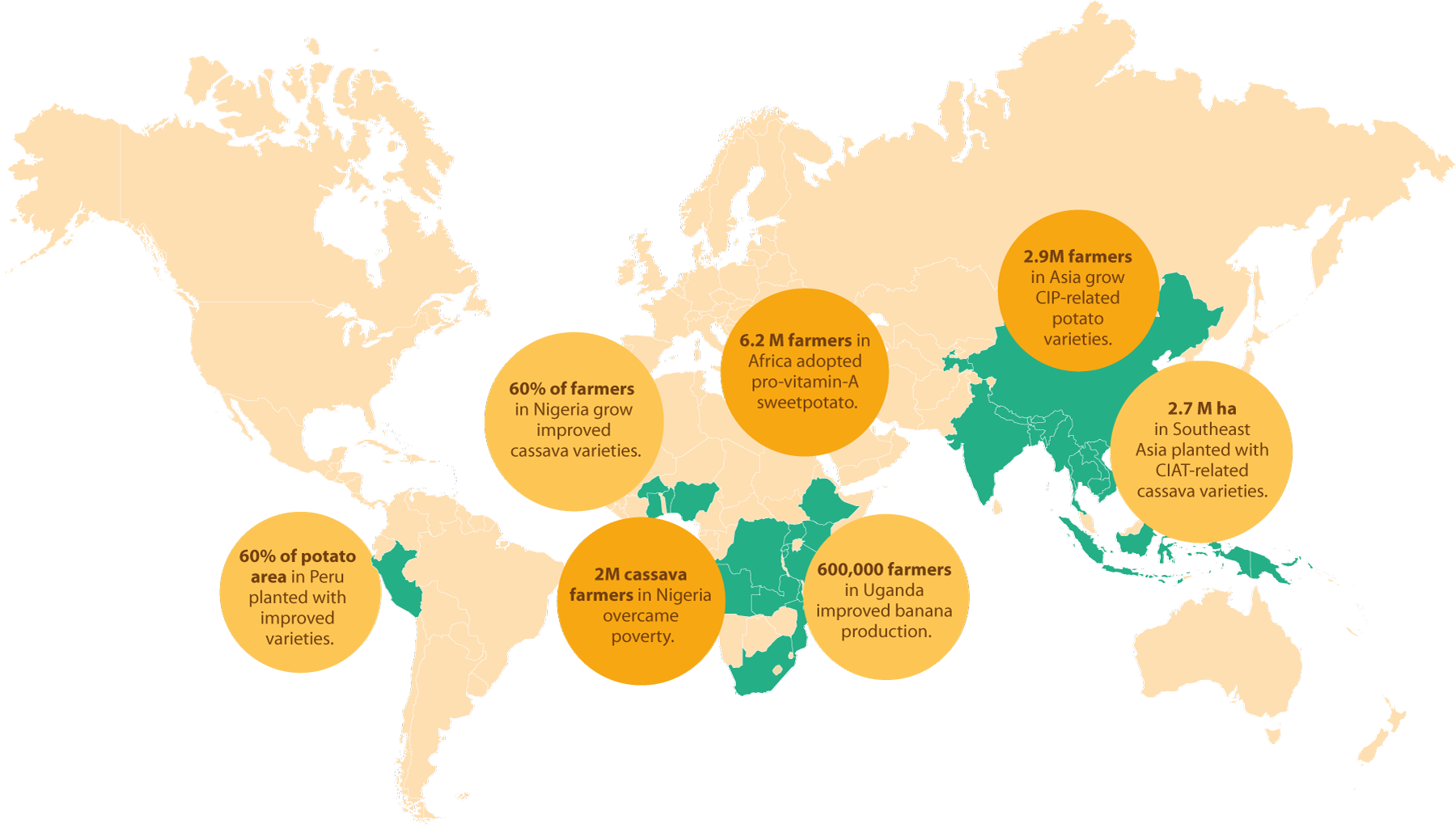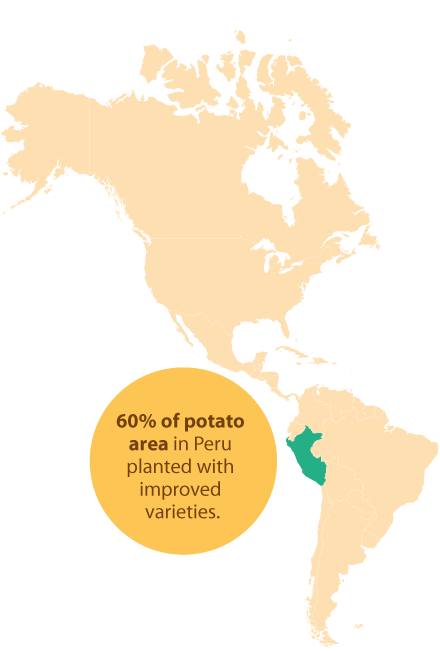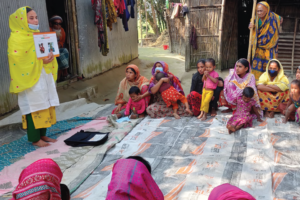To find solutions to such problems, and harness their full potential to improve lives and livelihoods, the International Potato Center (CIP) partnered with three CGIAR Centers and the French Centre de Coopération Internationale en Recherche Agronomique pour le Développement (CIRAD) from 2012 to 2022 in the CGIAR Research Program on Roots, Tubers and Bananas (RTB). Together, they enabled 12.7 million farm households in Africa and Asia to increase their food production with improved varieties and practices. This includes 2.8 million potato farming households in China, India and Nepal, and 3.1 million cassava farming families in Nigeria. At the same time, more than 6.2 million households in 17 African countries received planting material for nutritious sweetpotatoes. To complement this, the program catalyzed inclusive market opportunities, and fostered gender-responsive research and interventions.
RTB has been widely recognized for its outcomes (see map), its collaborative approach – working with 350 public and private sector partners – and for developing 77 innovations shared with farmers and national agricultural extension agencies around the world. As the program prepared for closure, teams identified 13 approaches, tools and frameworks with outstanding potential, and dubbed them the RTB “golden eggs.”
“The golden eggs are the product of cross-center collaboration. They are innovations that would not have been developed without the collective action that RTB facilitated,” explains Graham Thiele, RTB Director. “We’ve tried to ensure that they are adopted, nurtured, and used to develop effective solutions for global problems.”
The golden eggs include a farmer business school curriculum that has enabled thousands of rural women and men in Southeast Asia to launch cooperative enterprises; an approach to assess research options and their potential impacts, to guide investments; and a toolbox for studying and improving root, tuber and banana seed systems, which is essential for improving smallholder yields. While researchers in various African countries have used the seed system tools to inform interventions, an RTB approach to assess and monitor in situ conservation of crop diversity on farms is being incorporated into the new CGIAR Nature-Positive Solutions Initiative. Even the concept of a golden egg has been adopted, as other CGIAR research programs are using the term for their most promising assets, which they offered to leaders of One CGIAR Initiatives through a virtual Golden Egg Transfer Marketplace.
RTB contributions to CGIAR system level outcomes 2017–2021
Inclusive innovations
RTB prioritized research that addresses the needs and constraints of both men and women to ensure ample, equitable impact. The program convened a multidisciplinary group of scientists who contributed to the development of G+ breeding tools, with support from the CGIAR Excellence in Breeding Platform. RTB also created a Gender-Responsive Agricultural Research for Development Portal with resources to enhance interventions ranging from pest and disease control to value chain development.
“We wanted to address gender knowledge gaps in agricultural research and development, and help scientists accommodate the needs and interests of diverse social groups,” explains CIP scientist Nozomi Kawarazuka.
Scaling science
Scaling Readiness is another golden egg with exciting potential. This tool measures the “readiness” of innovations for scaling with ideas for designing, implementing and monitoring those innovations to ensure success. The approach was used by scientists to increase the use of RTB innovations such as the triple S approach for producing sweetpotato planting material and the apical cutting technology for potato seed production – which boosted their adoption while providing feedback used to improve Scaling Readiness.
Scaling Readiness has since been adopted by the CGIAR System Organization as part of its performance and results management framework, and the website with tools and courses developed to facilitate its use is attracting interest from other international development organizations. Marc Schut, one of the developers of Scaling Readiness and a strategic advisor to CGIAR, notes that within 30 days of announcing an online course on the approach, more than 1,000 people had registered.
“We anticipated that the R4D sector would embrace a more structured approach to scaling innovation, but are positively overwhelmed by how widely it has resonated,” says Schut. He explains that a team of five is now working on a strategy to take Scaling Readiness to scale. “Wherever Scaling Readiness ends up, it all started with RTB,” he says.
As more organizations use and incubate the golden eggs, they are bound to hatch new contributions to food systems transformation and efforts to achieve the Global Goals.
Funders: CGIAR Trust Fund Donors.
Key partners: Associated CGIAR Research Programs: Roots Tubers and Bananas, Alliance of Bioversity International and International Center for Tropical Agriculture (CIAT); International Institute of Tropical Agriculture (IITA); Centre de Coopération Internationale en Recherche Agronomique pour le Développement (CIRAD); Wageningen University & Research.




